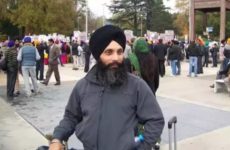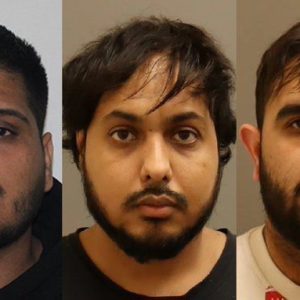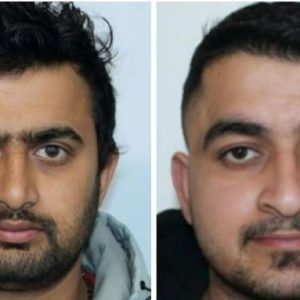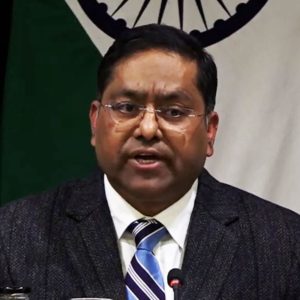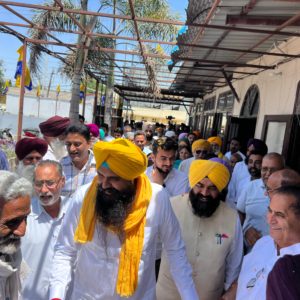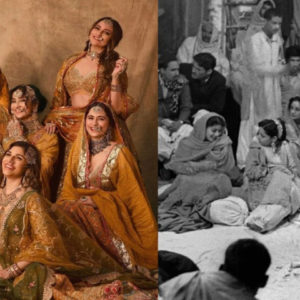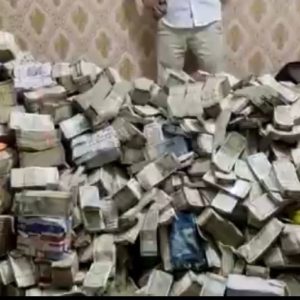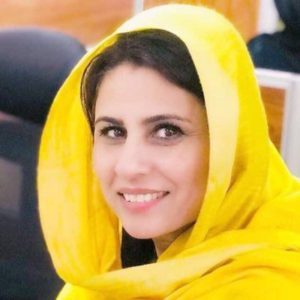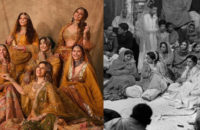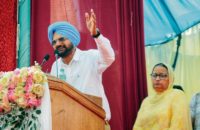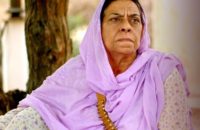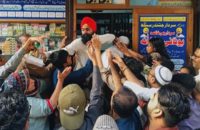New Delhi, Jawaharlal Nehru University (JNU) has called a meeting of top university officials on Monday after five student leaders having been charged with sedition are reported to have come back to the campus after evading arrest for more than 10 days.
Policemen who have been outside the university campus since Sunday after they received reports of the students’ return said they would ask the university’s vice-chancellor to order the suspects to turn themselves in to police.
JNU Registrar Bhoopender Zutshi however said that although he had read news reports that students had returned, he had yet to hear from them.
“We are having a meeting this morning in which the issue will be discussed and the future course of action will be decided,” he said.
Zutshi also did not say whether the university would speak to the suspected students.
“All of them are here to join the movement against branding of the university as a den of anti-nationals. They have not been issued any summons so the question of them surrendering doesn’t arise. If police arrest them, they will cooperate with the enquiry,” JNU Students’ Union vice-president Shehla Rashid Shora said.
Five JNU students — Umar Khalid, Anirban Bhattacharya, Rama Naga, Ashutosh Kumar and Anant Prakash — came back to the university claiming that they had been framed and that the video in which some supposedly anti-national slogans could be heard was doctored.
The five have been missing since February 12, when JNU students’ union president Kanhaiya Kumar was arrested for sedition for anti-national activities.
Ashutosh Kumar, former president of JNU Students’ Union and a PhD scholar at university’s School of International Studies, claimed they came back “ with a view of supporting the enquiry. The massive support we got from students and others from across the globe gave us the strength to return. I, Rama, Anirban and Anant were around but did not come in public due to atmosphere of mob lynching”.
He also claimed they were not in touch with Umar Khalid and that they had last spoken to him last on February 9, when they held an event in which some anti-India slogans were allegedly raised.
Kumar also claimed they had been in Delhi since and that the decision to return on Sunday evening was his own and not collective.
“We didn’t do anything wrong but were being framed using doctored video. We will not go anywhere now and will be part of the movement against the branding of university as anti-national,” he had said.
‘Professors are hiding them’
The Akhil Bharatiya Vidhyarthi Parishad (ABVP) claimed the five students’ were hiding in the houses of some university professors.
“We are very certain that these students are hiding in residences of professors on campus.
We demand an enquiry into the same and the teachers supporting these students should also be penalised by the university,” Saurabh Kumar Sharma, Joint Secretary of JNUSU said in a press meet.
“Last night they suddenly emerged on campus and proudly addressed rallies. A huge gathering of students and teachers even lauded them. We demand that the vice-chancellor intervene and direct the five students to surrender before police. We want JNU administration, varsity security and police to devise a strategy on how that could be facilitated without disrupting the peace on campus,” he said.
‘What is happening in JNU?’
The events involving the Jawaharlal Nehru University (JNU) have left foreign scholars perplexed. Many have written to ask university vice-chancellor M Jagadesh Kumar why he “jumped to unwarranted conclusions”.
In an e-mail addressed to Kumar, Michael Lambek, FRSC Canada Research Chair, University of Toronto, has said: “Canadian scholars are perplexed, saddened, and outraged at recent events at JNU. Why have you abrogated the fundamental principle of free speech on your campus? Why have you jumped to unwarranted conclusions and why have you called so precipitously on the police?”
Another e-mail, this one from Diana L Eck, a professor of comparative religion and Indian studies at Harvard University, reads: “It is astonishing and deeply troubling to see that the lively discussion of critical issues at JNU has resulted in the arrest and detention of the JNU Students’ Union president Kanhaiyya Kumar on charge of sedition. Is this a term that can be used in the context of a modern and distinguished University? Is it consistent with the character of a democratic nation or of a great university like JNU to criminalise dissent and bring police to the campus? We at Harvard have had difficult times of dissent and harsh criticism of the government and of the University itself. This is part of the free exchange of ideas and the freedom of speech that is necessary for the free institutions of democracy to thrive”.
“The perception that the Indian state is increasingly resorting to intervention to suppress views it finds threatening is itself threatening. Please do not acquiesce in this move to undermine a great university like JNU.”
Police Commissioner meets Lt Guv
Delhi Police Commissioner BS Bassi met Lt Governor Najeeb Jung to apprise him of the latest developments.
“It was a routine meeting between the Commissioner and the Lt Governor, in which the latter was briefed about the ongoing JNU row,” a senior officer said.
Earlier in the day, Bassi said the students should prove their innocence instead of hiding.
“Delhi Police is a law abiding body and we do not indulge in any injustice against anybody. One should also remember that the police comes first in the ladder of justice,” he told reporters.
Bassi said they were trying to verify the authenticity of the video clips that was used to charge JNU students with sedition.
“We always verify whatever footage we use in a probe. The footages in our possession have been sent for verification,” Bassi told reporters.
‘Will restrict hearing to violence in court’
The Supreme Court decided to restrict itself to the recent violence in Patiala House courts in which some lawyers had beaten up journalists and teachers and students of JNU on February 15.
“We are not concerned with other incidents. We are only concerned with the episode that had happened on February 15,” a bench comprising Justices J Chelameswar and AM Sapre said when a lawyer wanted to intervene on behalf of Karkardooma Bar Association.
Bar Council of India asked the court if it should act against lawyers involved in the February 15 incident as well as the one that occurred on February 16, when some lawyers attacked journalists and student leader Kanhaiya Kumar, who was being produced in court.
“Today we are not saying anything on it,” the Bench said.
‘Nothing happened inside court’
There appear to be contradictory views on the violence Patiala House Court witnessed on February 17.
Although, most lawyers in the panel appointed by the Supreme Court agree JNUSU president Kumar was assaulted both inside and outside court, senior advocate AK Sinha, who represented Delhi Police in the Supreme Court, had refused to sign the report. Instead, he submitted a separate report claiming nothing had happened inside the court — a claim that also found echo in a report by the Registrar General of Delhi High Court, although he admitted that he was assaulted outside the court while he was being taken to a waiting police vehicle.
The court will hear the case next on March 10.
Kanhaiya Kumar was arrested for sedition on February 12 for suspected anti-national activities after an event his union — the JNU Students’ Union (JNUSU) —organised on February 9 allegedly saw students raise anti-India slogans.
The event was organised to protest Parliament attack convict Afzal Guru’s execution on his third death anniversary.




 Arvind Kejriwal can campaign for Lok Sabha polls; gets 21-day interim bail
Arvind Kejriwal can campaign for Lok Sabha polls; gets 21-day interim bail



